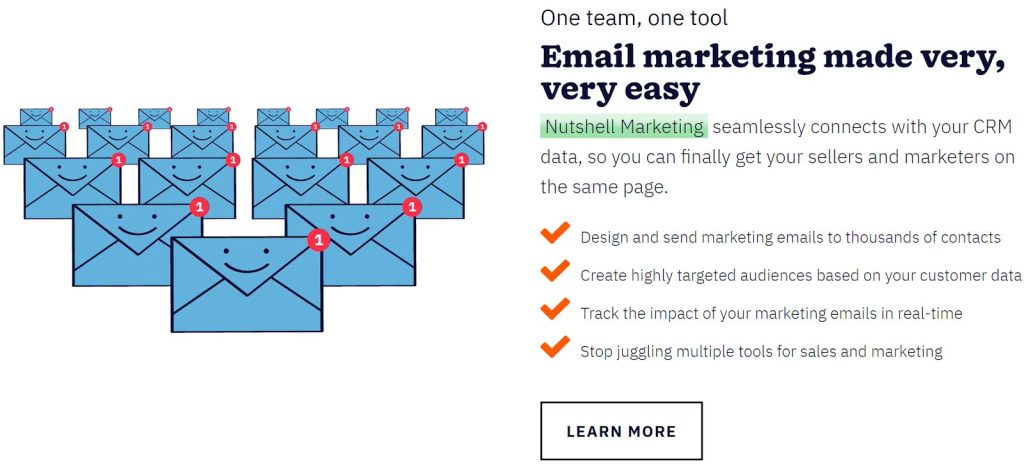Need more Leads?
Invest in professional marketing services from WebFX and kick your company’s growth into high gear.

Modern marketers need both hard and soft skills: From SEO, analytics, and email marketing to creative copywriting, design thinking, and adaptability, successful digital marketers must combine technical proficiency with strategic creativity.
Tool proficiency is essential, but mindset matters more: Mastering platforms like Google Analytics, Canva, and CRM tools is important, but applying them through a goal-driven, customer-centric lens is what drives real results.
Adaptability and cross-functional collaboration are key: The ability to pivot with trends, communicate effectively across teams, and align campaigns with business objectives separates good marketers from great ones.
Like driving a manual transmission or anything related, there are tons of skills that go out of style. However, in the world of digital marketing, plenty of skills withstand the test of time, too.
If you’re looking to master the ins and outs of digital marketing, it’s in your best interest to add these to your repertoire, your resume, and, most importantly, your brain.

We curated this list of essential digital marketer skills to address marketers at companies with high-quality, functional marketing funnels that generate leads independently of the sales pipeline.
So here are the top 20 skills for digital marketing that all good digital marketers should have—plus a few essential soft skills to consider.
💬 ChatGPT
🔍 Perplexity
🤖 Claude
🔮 Google AI Mode
🐦 Grok
Whether you’re interested in learning something new, posting a job description, or simply need some vindication about what a digital marketing rockstar you are, here are the top 16 most impactful hard skills for a solid digital marketing career:
Did you know that many small-to-midsize businesses (SMBs) spend $2000-$10,000 on content marketing each month—or that one in six enterprise-level organizations report spending at least $10 million yearly on content creation?
Content marketing is a digital marketing skill that you should be aware of and know how to do very well. After all, blogging is one of the most important lead-generation tactics modern marketers use.
Digital marketers skilled in blogging must understand the ins and outs of editing, grammar, SEO, keyword research, article structure, and more. But that doesn’t mean it’s inaccessible. In fact, you can learn a lot from reading other blogs about writing SEO content.
The notes app (yes, the one on your phone), Notepad, or any other plaintext editor for brainstorming and forming talking points leading up to composing a draft
Not to be confused with blogging, which is a digital marketing skill in and of itself. In marketing, copy basically translates to words, and copywriting translates to writing marketing words.
Digital marketers write these marketing words all the time for many different applications. Blog content is copy, sure, but a good copywriter can make qualitative changes to their writing depending on where it is deployed.
Writing bullet points and blurbs on a website requires different skills than those needed to compose compelling emails. Drafting a blog post is dramatically different from writing a video script. It’s all copy, and it’s all marketing, but it requires different training and a different strategic approach.
Email is ubiquitous. Almost everyone sends and reads emails, whether in a professional capacity or on a personal basis. Because of this, email marketing is still the leading tactical way of reaching specific audiences.
Of course, “email marketing” is an umbrella term that describes a diverse array of email strategies, each requiring its own unique marketing skills.
A solid digital marketer will have the ability to write different types of emails, like:
Catch your buyers’ attention at every stage of the funnel with Nutshell’s Email marketing solution that’s built right into your CRM.

Having a firm grasp of web design is a digital marketing skill that makes digital marketers invaluable. This doesn’t mean that all digital marketers should inherently be skilled at building sites from scratch and writing code (although knowing how to tweak existing HTML and CSS code is profoundly useful).
Marketers must understand the basics of web design, such as how to incorporate the company’s logo and branding and adhere to style guidelines.
With a bit of skill and marketing magic, a marketer should be able to pull off the feat of designing and creating simple web pages—mainly landing pages, lead magnets, and web forms. Any serious web design work should be left to the company’s dedicated web designer.
And, of course, your company’s website should have a streamlined blogging and content creation system so that creating and publishing content doesn’t require marketers to solicit help from other departments.
Related: What is a good website and how do I make one?
Editing photos isn’t just for Instagram #influencers—it’s for digital marketers, too.
Knowing how to edit photos or create certain kinds of imagery used on various website pages, within content, on social media, and in content downloads is an integral part of the digital marketer’s role.
Although it would be helpful, this doesn’t mean that all digital marketers must be skilled in the entire Adobe suite or even Photoshop itself. Plenty of image editing apps for PC and mobile can do the job.
For marketers, being able to do some light graphic and image editing eases strain from the rest of the team, like the dedicated graphics designers whose time might be better spent doing heavier-lift projects.
We’ve all heard people (on LinkedIn) talk about how “content is king.” Well, in the world of digital marketing, analytics is the queen.
With a bit of analysis, digital marketers can see exactly how well their marketing is doing—which strategies are working and which aren’t. This allows them to make better decisions about what to do next time.
This doesn’t mean that every digital marketer should inherently be a data analyst or have a repertoire of obscure Excel formulas committed to memory. Still, they should at least be able to track the success of their marketing concisely.
And with data analytics comes conversion rate optimization (CRO)—the process of testing pages, copy, and calls-to-action (CTAs) to see what converts best. Digital marketers will need CRO skills if they want to turn raw marketing data into actionable insights.
Most content marketers are already skilled in Google Analytics and other web-tracking software, but email marketers might prefer the built-in reports that come with their email marketing suite. At the end of the day, marketers should be able to measure the success of whatever marketing they do.
Regardless of how great your content is, getting visibility on search engines requires some SEO expertise.
Again, not every digital marketer needs to be obsessed with SEO, but understanding the basic skills and concepts is essential. Whether you invest in SEO tools and resources for your team or outsource a professional, SEO is critical to the success of any digital marketing strategy. Without quality SEO, content doesn’t get the visibility it deserves, which reduces its ROI.
Understanding SEO and being able to “bake it into” marketing content is a phenomenal way for digital marketers to multiply their efforts and help their content garner more organic engagement.
Invest in professional marketing services from WebFX and kick your company’s growth into high gear.

SEM involves strategically placing ads on search engine results pages (SERPs). Paying for search ads can help your business shoot to the top of search results pages and lead to increased sales.
Although trying to target every possible search phrase with ads may seem like a good idea, the most successful marketers leverage SEM with a specific goal. They need to consider factors like keyword intent, cost, keyword volume, competition, and campaign structure.
A good SEM strategy, coupled with SEO expertise, goes a long way in optimizing your company’s visibility in the SERPs.
“Communication is key,” the late ’90s motivational posters say. And this time, they’re right.
Communication skills are arguably the most underrated skills in any professional setting. From working with teams to communicating with prospects and customers alike, being able to give and receive information effectively is critical—no doubt about it.
But what about digital marketers’ communication skills?
Marketers should be able to communicate spectacularly at various levels, including in web content, through emails, blog posts, social media, and so on. They need to adhere to the company’s communication style while also using their own personal voice wherever it’s required.
For instance, copy intended for a website page should adhere strictly to the company’s brand voice. Rather than long-form written content, marketers will need to communicate by using text, images, icons, buttons, styling, blurbs, and more.

Switching gears, digital marketers also need to be able to compose emails for large audiences, tactical recipients, and one-to-one messaging, and each requires a different feel and tone. Digital marketers also need to know how to write and speak persuasively—after all, their job is to get potential buyers thinking about just how great their products are.
Social media posts require the brand’s voice and (ideally) are broadcast to a large audience. Blog posts are in the half-personal-half-brand-voice space. Each medium requires a different communication style, which is why a solid marketer should be a communication chameleon.
There is always so much stuff to do! It’s practically impossible to keep track of every project and every deadline without some type of project management tools (and the skills to use them).
For content marketers, this means managing freelancers, assigning blog topics, keeping track of deadlines, getting the freelancers paid, and more.
For email marketers, each email has a scheduled send time and is carefully measured to ensure that they’re reaching maximum effectiveness, which is painfully difficult to achieve without some sort of dashboard, at the very least.
Since marketers are often leveraged for design and communications, managing projects and tasks outside the marketing team is also required.
And then, of course, there are the millions of messages in our inboxes that require responses.
A skilled digital marketer should know how to use tools and software to track the diverse projects and initiatives undertaken at any given time.
As a digital marketer, you’re responsible for representing your company’s brand to the world through the content and messaging you create.
Brand development is a digital marketing skill that enables you to transform the important characteristics of a brand into images and words that convey those characteristics. Having a solid understanding of the brands you work for—and knowing how to communicate their value—is crucial.
Your goal is to build trust in the brand using brand-associated language and visual elements. You may also find yourself part of the brand development process, helping the business create and establish its brand identity.
You may not think of it as a skill, but the ability to leverage automation tools in digital marketing is highly valuable. That’s because automation streamlines time-consuming tasks and ultimately enables marketers to accomplish more with their time.
Knowing how to create web forms, set up email drip campaigns, and automate posting to social media can help you nurture more leads into customers than you could with manual effort.
The technical skills for asset creation (graphics, copywriting, distribution, etc.) have already been covered, but the most important piece of the puzzle has yet to be addressed.
Skilled marketers know how to create assets that will really get something done. It starts by asking questions like:
Marketing assets are more than just a show-and-tell of cool content. They’re tactical tools meant to serve a specific purpose and motivate users to complete a specific goal.
A digital marketer with asset creation skills and expertise can plan this out upfront, manage the creation and distribution, and measure the impact effectively.
Social media marketing encompasses more than placing pay-per-click ads on Facebook or uploading posts according to your social media calendar. These platforms offer companies a place to connect and build relationships with their audiences.
Each social media channel brings something different to the table, and it’s a digital marketer’s job to understand these nuances. User demographics, behaviors, and preferences vary from one social platform to the next, and each operates using its own unique algorithm.
Knowing the differences helps marketers determine what messaging is most relevant to each platform and how best to join or lead the conversation. It’s also vital for developing effective social media ad campaigns.
Delivering engaging, relevant, high-quality content is the most important factor when crafting your social media marketing strategy.
Related: What’s the Cost of Social Advertising?
The popularity of video as a preferred method of content consumption continues to grow, making it a powerful tool for increased audience engagement and conversion.
Therefore, it stands to reason that understanding when and how to create videos, where to distribute them, and the SEO related to them are essential digital marketer skills.
Some of the fundamental benefits of learning and implementing effective video marketing strategies are:
Influencer and micro-influencer marketing are all the rage, and for good reason. Collaborating with influential individuals to promote your products and services is a fantastic way to reach new audiences and build trust in your brand. But it’s important for digital marketers to build relationships with the right influencers.
As a digital marketer, you must ensure that the followers of the influencers you choose to work with fall within the scope of your target audience. You should also select influencers whose messaging aligns with your brand voice and image.
The same goes for partner programs, where your company can team up with another business to help promote each other’s solutions.
Digital marketers can leverage the power of influencer and partner marketing to drive brand awareness, generate leads, increase sales, and much more.
There’s no doubt that the skills listed above are absolutely essential for digital marketing success. But these are just the vital hard skills that give you the technical ability to be a great digital marketer all-rounder. There are also soft skills to consider, and mastering these will give you the edge over many other would-be digital marketers.
Design thinking is a problem-solving approach rooted in a human-centered perspective. In other words, it’s a way of resolving issues with the human experience in mind, focusing on potential solutions to a problem instead of the problem itself.
This digital marketing soft skill is critical in digital marketing because marketers have to think from the perspective of potential customers, identifying why they may or may not want to use a particular product or service. From this perspective, digital marketers can tailor their messaging for the best results.
It’s a good idea to develop design thinking because digital marketers need to use trial and error and testing to find the best marketing strategies.
Digital marketers who think and solve problems creatively can devise unique campaigns and strategies that break through the barrier of a noisy, saturated environment. With this innovative approach, marketers have the tools to adapt to an ever-changing industry landscape and alter the course to achieve campaign goals.
Next time you’re analyzing campaign data, try brainstorming a few unconventional solutions or approaches using techniques like mind mapping and reverse engineering. This will help you exercise those creative problem-solving muscles.
A significant aspect of your job as a digital marketer is to convince your target audience to take a desired action—like signing up for a newsletter, registering for a webinar, or purchasing a product. Your ability to persuade will help you craft compelling messaging that resonates with your audience, influencing their decisions and building stronger relationships.
Developing your persuasiveness as a digital marketer begins with understanding your market and ideal customer, particularly your target audience’s behavior and preferences. Leveraging your storytelling skills to speak to your audience’s wants, needs, and desires could drastically increase your campaign’s success.
The one constant in life is change, and as a digital marketer, you’ll experience a myriad of changes from marketing tech to industry trends, campaign obstacles, and more. Agile marketers have the skills to adapt and prioritize quickly to keep campaigns moving and drive success.
To develop this essential soft skill required by digital marketers, keep an eye on industry trends, algorithm updates, and emerging technologies. Be proactive by experimenting with new and unusual strategies and tools when you can to promote a growth mindset and remain agile.
At marketing-successful companies, digital marketing generates the lion’s share of leads. Inbound leads are plentiful in these organizations, and salespeople can take a more passive approach by simply responding to sales-qualified leads (SQLs) who have already expressed interest, requested a demo, downloaded a trial, and so on.
At marketing-poor companies, digital marketing assists the sales team with asset creation and sales collateral. Digital marketers at these companies may find that most of their time is spent writing PowerPoint decks and designing trade show banners.
The former style of marketing is superior. Skilled digital marketers can create dynamic marketing funnels that generate leads all by themselves.
A good company understands this, leverages it, and doesn’t constrict its marketers to take its direction from the sales team. Instead, the sales and marketing teams work together toward a unified goal.
See also: Why a single growth team is the ultimate answer to sales and marketing alignment.
B2B Marketer’s Toolkit collects 120+ of the best lead generation tips ever published on the Nutshell blog. Download it today!

So, how do you improve your skills for digital marketing to make yourself more valuable to your company? Here are a few tips to help you drive your career through digital marketing:
There are plenty of opportunities to learn more about digital marketing out there, from podcasts to online courses. Find respected and successful people in the field and learn as much as you can from them. Educational courses can also give you certifications that level up your skills.
Testing your digital marketing skills to generate accurate results can help determine which strategies work best. Practice skills like writing copy and blogging on your own website, editing photos and videos for your social media accounts, and analyzing data for your website’s rankings on the SERPs.
Finally, conduct lots of market research. You’ll sharpen your data analysis skills and learn what techniques work for other marketers. Trends and technology are constantly changing, so staying on top of what’s going on in the industry is important.
There you have it—the top 20 skills a digital marketer should strive to have. If you’re a marketer, these skills and tools should absolutely be on your radar—or, at the very least, on your list of marketing tasks to outsource.
Having the right resources and tools makes all the difference when utilizing your digital marketing skills. At Nutshell, we’ve created our customer relationship management (CRM) platform to work with your company’s marketing team to give everyone a complete picture of your relationships with leads. With features like built-in email marketing, sales automation, and connected web forms, Nutshell keeps all the relevant information about your leads and customers in one easily accessible location.
To see for yourself the value Nutshell can provide for your team, start a free 14-day trial today!
Digital marketing requires a blend of 16 hard skills and 4 soft skills. Essential hard skills include SEO, content creation (blogging and copywriting), email marketing, marketing analytics, social media management, and marketing automation. Key soft skills include creative problem-solving, adaptability, persuasiveness, and design thinking. The most successful digital marketers combine technical expertise with strategic thinking and strong communication abilities to create campaigns that drive measurable results.
The five most in-demand digital marketing skills are marketing analytics (understanding data and ROI), search engine optimization (driving organic traffic), content marketing (blogging and copywriting), marketing automation (efficiency and scale), and social media management. These skills consistently appear in job postings and command higher salaries because they directly impact business growth. Employers particularly value marketers who can combine these technical skills with strategic thinking to prove marketing ROI.
Digital marketers need 16 core hard skills: blogging, writing marketing copy, email marketing, web design, photo editing, marketing analytics, SEO, search engine marketing (SEM), communication, project management, brand development, marketing automation, asset creation, social media management, video marketing, and influencer marketing. These technical abilities can be learned through courses, certifications, and hands-on practice. The most valuable hard skills vary by role—specialists might deep-dive into one area like SEO, while marketing generalists need working knowledge across multiple disciplines.
The four essential soft skills for digital marketers are design thinking (understanding user needs and creating customer-centric campaigns), creative problem-solving (finding innovative solutions to marketing challenges), persuasiveness (influencing audiences and stakeholders), and adaptability (staying current as platforms and algorithms evolve). These soft skills are harder to teach but crucial for career advancement. They help marketers navigate ambiguity, lead teams, and pivot strategies when data shows campaigns aren’t performing.
Improve your digital marketing skills through four key strategies: take hands-on courses and earn industry certifications (Google Analytics, HubSpot, Meta Blueprint), practice by working on real campaigns (even personal projects or volunteer work), stay current by following industry blogs and attending webinars, and use professional tools to build technical proficiency. Consider specializing in 2-3 high-demand skills like analytics or SEO before expanding to other areas. Track your skill development progress and update your portfolio regularly to showcase your growing expertise to employers.
Most people can learn fundamental digital marketing skills in 3-6 months of dedicated study and practice. However, mastery takes 1-2 years of hands-on experience applying those skills to real campaigns. You can accelerate learning by focusing on one specialty area first (like SEO or email marketing) rather than trying to master everything simultaneously. Entry-level positions often require proficiency in 5-7 core skills, while senior roles demand expertise across 10+ areas plus proven results. The fastest learners combine online courses with practical application and mentorship.
No, you don’t need a college degree to work in digital marketing. Many successful digital marketers are self-taught or completed bootcamps and online certifications rather than traditional four-year degrees. Employers prioritize demonstrable skills, portfolio work, and proven results over formal education. That said, a degree in marketing, communications, or business can provide helpful foundational knowledge and networking opportunities. Focus on building a portfolio that showcases your digital marketing skills through real campaigns, case studies, and measurable results—this matters more than credentials.
Hard skills in digital marketing are technical, teachable abilities like SEO, email marketing, analytics, and design—you can learn them through courses and measure proficiency objectively. Soft skills are interpersonal and cognitive abilities like creativity, adaptability, and persuasiveness—they’re harder to quantify but essential for applying hard skills strategically. Successful digital marketers need both: hard skills execute tactics (running an email campaign), while soft skills drive strategy (knowing which message will resonate with your audience). Most job postings emphasize hard skills, but soft skills often determine who gets promoted to leadership roles.
Employers most frequently seek candidates with marketing analytics and data interpretation skills (78% of job postings), followed by SEO and content marketing (65%), social media management (62%), email marketing (54%), and marketing automation platforms (48%). Technical skills that prove ROI are especially valuable—employers want marketers who can track campaign performance and optimize based on data. According to recent salary surveys, marketers with strong analytics skills earn 15-25% more than peers with only creative skills. Master these high-demand areas first to maximize your career opportunities.
Yes, many digital marketing skills can be learned through free resources. Google offers free certifications in Analytics and Digital Marketing Fundamentals. HubSpot Academy provides free courses in content marketing, email marketing, and social media. YouTube channels, marketing blogs, and free trials of marketing tools let you practice hands-on. However, paid courses and certifications often provide more structured learning paths, hands-on projects, and credentials that employers recognize. Invest in 2-3 key paid certifications for your resume, but supplement with free resources to expand your knowledge across the full range of digital marketing skills.
Try Nutshell free for 14 days or let us show you around before you dive in.


Join 30,000+ other sales and marketing professionals. Subscribe to our Sell to Win newsletter!